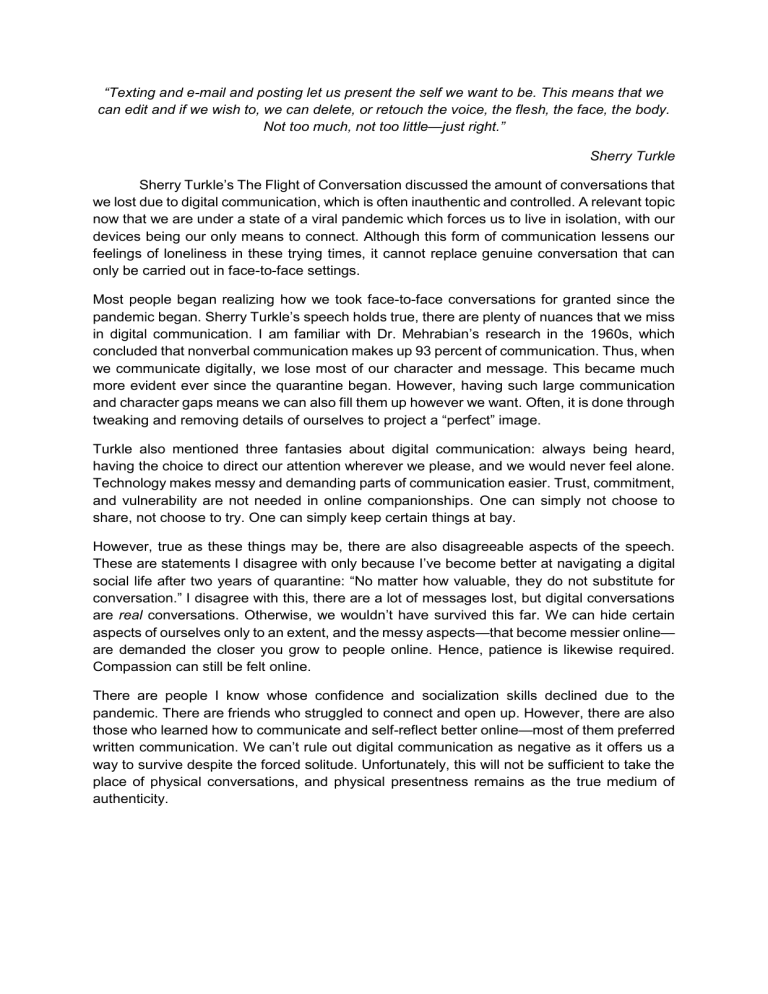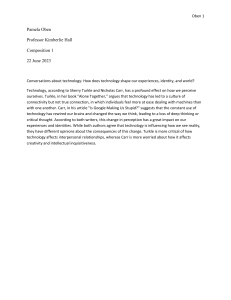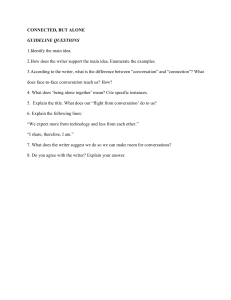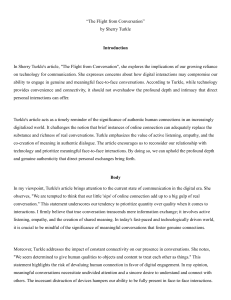
“Texting and e-mail and posting let us present the self we want to be. This means that we can edit and if we wish to, we can delete, or retouch the voice, the flesh, the face, the body. Not too much, not too little—just right.” Sherry Turkle Sherry Turkle’s The Flight of Conversation discussed the amount of conversations that we lost due to digital communication, which is often inauthentic and controlled. A relevant topic now that we are under a state of a viral pandemic which forces us to live in isolation, with our devices being our only means to connect. Although this form of communication lessens our feelings of loneliness in these trying times, it cannot replace genuine conversation that can only be carried out in face-to-face settings. Most people began realizing how we took face-to-face conversations for granted since the pandemic began. Sherry Turkle’s speech holds true, there are plenty of nuances that we miss in digital communication. I am familiar with Dr. Mehrabian’s research in the 1960s, which concluded that nonverbal communication makes up 93 percent of communication. Thus, when we communicate digitally, we lose most of our character and message. This became much more evident ever since the quarantine began. However, having such large communication and character gaps means we can also fill them up however we want. Often, it is done through tweaking and removing details of ourselves to project a “perfect” image. Turkle also mentioned three fantasies about digital communication: always being heard, having the choice to direct our attention wherever we please, and we would never feel alone. Technology makes messy and demanding parts of communication easier. Trust, commitment, and vulnerability are not needed in online companionships. One can simply not choose to share, not choose to try. One can simply keep certain things at bay. However, true as these things may be, there are also disagreeable aspects of the speech. These are statements I disagree with only because I’ve become better at navigating a digital social life after two years of quarantine: “No matter how valuable, they do not substitute for conversation.” I disagree with this, there are a lot of messages lost, but digital conversations are real conversations. Otherwise, we wouldn’t have survived this far. We can hide certain aspects of ourselves only to an extent, and the messy aspects—that become messier online— are demanded the closer you grow to people online. Hence, patience is likewise required. Compassion can still be felt online. There are people I know whose confidence and socialization skills declined due to the pandemic. There are friends who struggled to connect and open up. However, there are also those who learned how to communicate and self-reflect better online—most of them preferred written communication. We can’t rule out digital communication as negative as it offers us a way to survive despite the forced solitude. Unfortunately, this will not be sufficient to take the place of physical conversations, and physical presentness remains as the true medium of authenticity.




